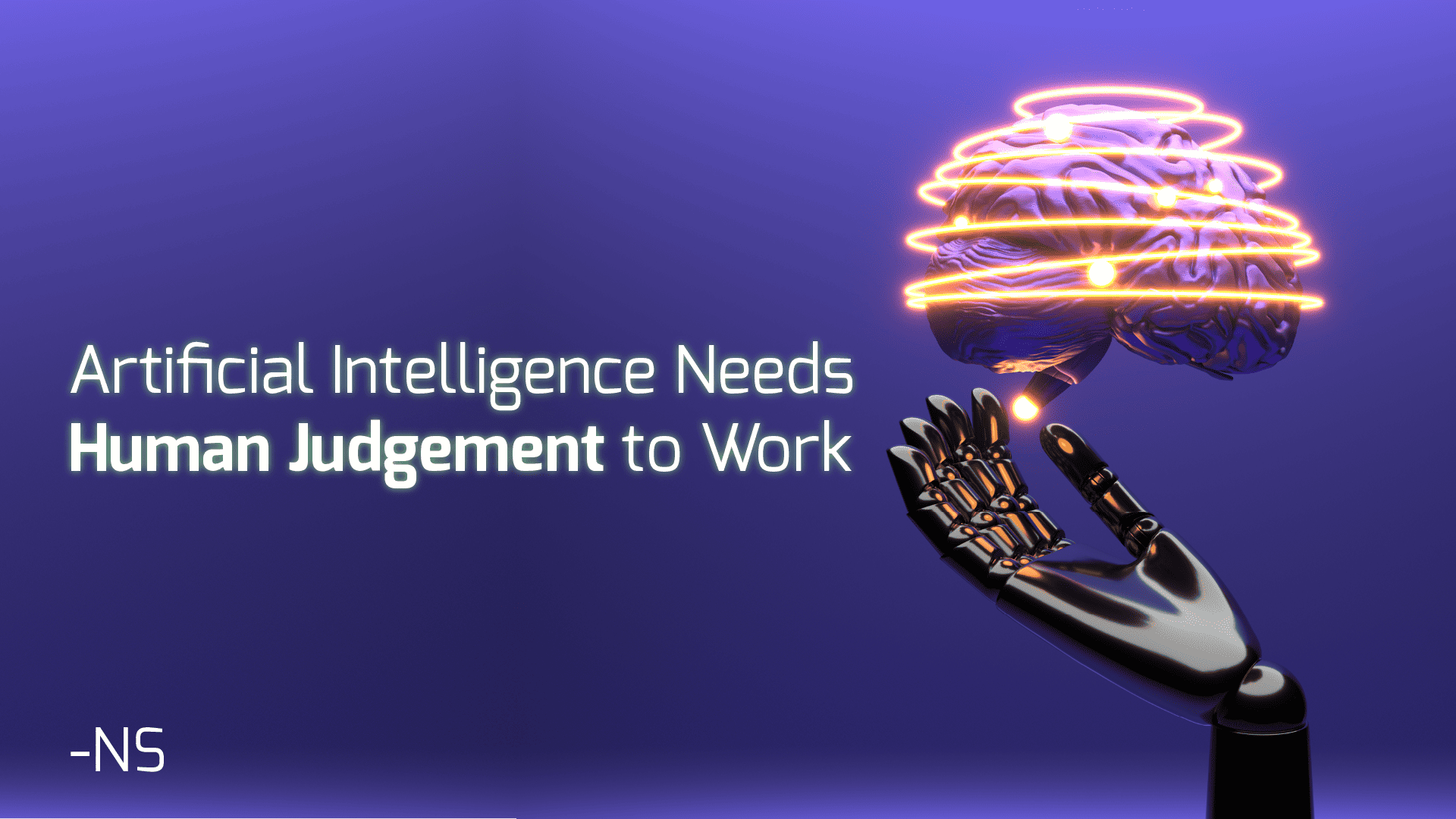“Artificial intelligences are prediction machines. They can tell you the probability it will rain today, but they cannot tell you whether or not you should pack an umbrella.”
– Agrawal, Gans, and Goldfarb, How Large Language Models Reflect Human Judgment, HBR
Artificial Intelligence (AI) has revolutionized various aspects of modern life, from recommending movies on Netflix to predicting market trends for financial analysts.
However, two questions remain—Can AI make decisions for us? Should it be allowed to?
In a world where AI systems like Atmo can apparently improve weather forecasting by a factor of 10,000, it might seem tempting to let it decide if you should take an umbrella today. Yet, this represents a fundamental misunderstanding of the nature of AI.
Indeed, the fear that many AI leaders have today is that we appear to be rapidly heading towards a future where important decisions are left to the auspices of intelligent systems, with minimal oversight. This, according to AI experts, is a recipe for disaster.
The Human Element in Decision-Making
Why can’t these technological marvels, capable of learning from millions of data points, make a simple decision for us? Let’s consider the umbrella conundrum from before.
An AI system can analyze vast amounts of meteorological data to predict with remarkable accuracy whether it will rain. However, whether you should carry an umbrella or not hinges on various personal factors, including your tolerance for getting wet, the importance of your appearance at your destination, and even the inconvenience of carrying an umbrella around all day. These subjective nuances elude the objective algorithms of AI.
As systems that operate on a cumulative progression of logical steps, an AI’s ability to process what could be termed “alternative logic” is still very limited. Rain equals umbrella makes logical sense. Rain equals playing in puddles, does not.
To put it another way, while AI can convincingly beat chess grandmasters—a game predicated on making a defined set of logical moves, one after another— it would be thoroughly flummoxed by a simple game of “Rock, Paper, Scissors.” After all, what logic is there in a piece of paper defeating a rock? To make that jump in “alternative logic” you need the power of the human mind.
(New to the world of AI? Check out our Beginner’s Guide to AI and get caught up !)
There are limits to AI judgment
The 2021 paper about AI use in battle noted that AI systems, despite their advanced predictive capabilities, fundamentally lack the subjective judgment and personal experience humans possess. They are excellent tools for aiding humans in decision-making by providing accurate predictions and offering various solutions. But the final decision, influenced by a variety of personal and situational factors, must remain irreplaceably human.
Like, for example, the use of AI in healthcare. Predictive models like IBM’s Watson can analyze patient data and suggest potential diagnoses and treatments, greatly aiding doctors in their decision-making process. However, the final decision still rests with the human practitioner, who must consider the patient’s overall condition, personal preferences, and even their cultural beliefs about certain treatments.
Consider the use of AI in financial institutions. Even with AI’s undeniable utility in areas like trading and investments, where AI algorithms can analyze market trends and suggest potentially profitable moves, the final decision remains with the investor. The investor’s decision might be influenced by their personal risk tolerance, their financial goals, or even their ethical stance on particular industries – factors that AI today cannot fully appreciate or integrate.
Don’t Substitute, Complement
“Nobody phrases it this way, but I think that artificial intelligence is almost a humanities discipline. It’s really an attempt to understand human intelligence and human cognition.”
—Sebastian Thrun, co-Founder, Udacity
This is not to undermine the instrumental role of AI in various fields. Indeed, like a digital Nostradamus, AI is capable of making predictions with an accuracy that often seems like prophecy. But knowing the future and deciding what to do with that knowledge are two very different things.
The growing field of explainable AI (XAI) holds promise for a future where AI systems can provide insights into their decision-making process. However even as AI advances towards greater transparency and personalization, the subjective, emotional, and intuitive aspects of decision-making are likely to remain uniquely human traits for the foreseeable future.
The key lies in understanding the complementary strengths of humans and AI. Machines excel at processing vast amounts of data, identifying patterns, and generating predictions, whereas humans bring the ability to reason, empathize, and draw from personal experiences. Therefore, the most effective decision-making process is likely to be a blend of AI-generated insights and human judgment.
(Learn more about how AI is set to transform our workplaces as we enter the Age of the AI Native Workplace)
Conclusion
As AI continues to permeate various aspects of our lives, it’s imperative to demystify its capabilities and limitations. Sure, AI can analyze a decade’s worth of rainfall data in a split second and tell you there’s a 97.3% chance it will rain today. However, whether you should wear your favorite white shirt or take an umbrella, well, that’s your call. You might want to jump in puddles, you might want to stay dry, or you might come back before an umbrella is needed at all.
So, while we embrace the age of AI, let’s also celebrate the beauty of human decision-making—unpredictable, emotional, and occasionally illogical. Because no matter how intelligent machines become, there is something inherently human about making our own decisions that AI, for now, cannot replicate.
 |
Nick Shah is the Founder and President of Peterson Technology Partners (PTP), Chicago’s premiere IT staff augmentation agency. With his relationship-focused mentality and technical expertise, Nick has earned the trust of Chicago-based Fortune 100 companies for their technical staffing needs.





